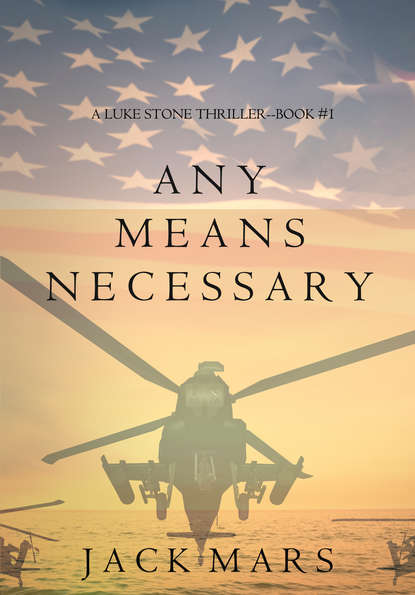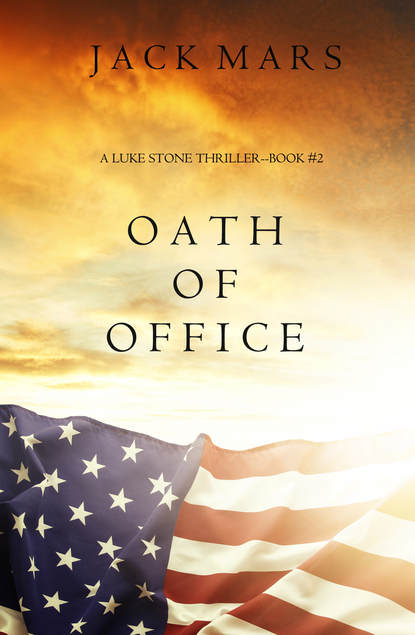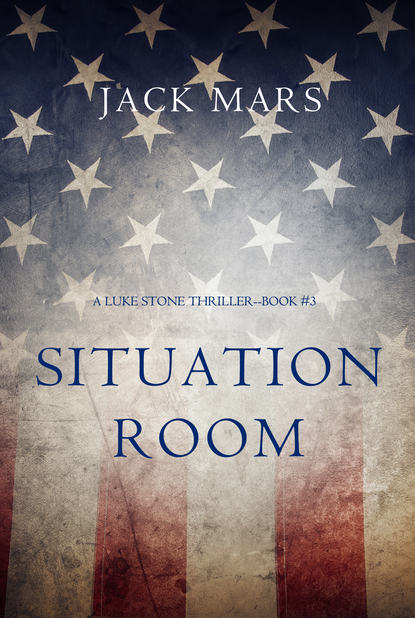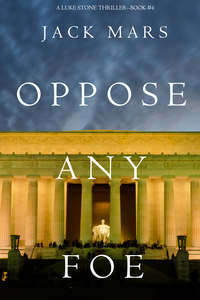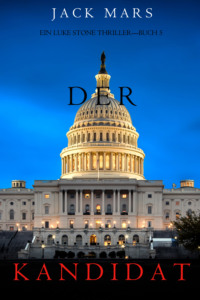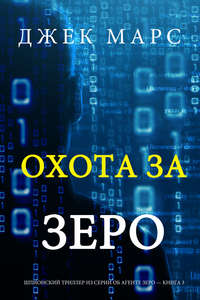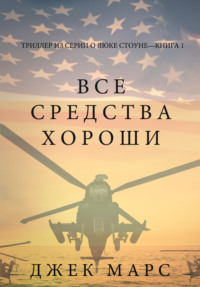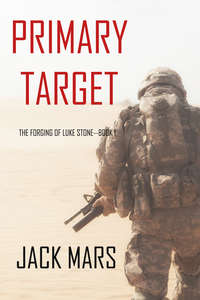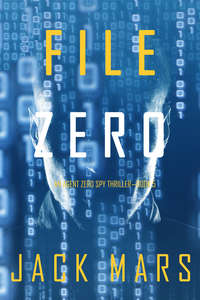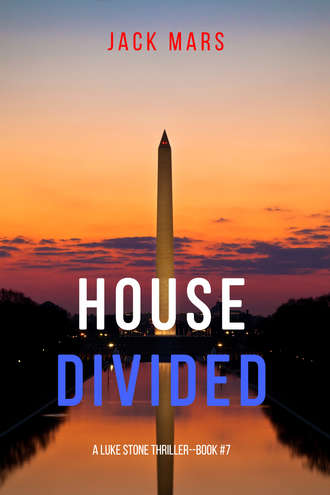
Полная версия
House Divided

Jack Mars
House Divided
Jack Mars is the USA Today bestselling author of the LUKE STONE thriller series, which include the suspense thrillers ANY MEANS NECESSARY (book #1), OATH OF OFFICE (book #2), SITUATION ROOM (book #3), OPPOSE ANY FOE (book #4), PRESIDENT ELECT (book #5), OUR SACRED HONOR (book #6), and HOUSE DIVIDED (book #7).
Jack loves to hear from you, so please feel free to visit www.Jackmarsauthor.com to join the email list, receive a free book, receive free giveaways, connect on Facebook and Twitter, and stay in touch!
Copyright © 2018 by Jack Mars. All rights reserved. Except as permitted under the U.S. Copyright Act of 1976, no part of this publication may be reproduced, distributed or transmitted in any form or by any means, or stored in a database or retrieval system, without the prior permission of the author. This ebook is licensed for your personal enjoyment only. This ebook may not be re-sold or given away to other people. If you would like to share this book with another person, please purchase an additional copy for each recipient. If you’re reading this book and did not purchase it, or it was not purchased for your use only, then please return it and purchase your own copy. Thank you for respecting the hard work of this author. This is a work of fiction. Names, characters, businesses, organizations, places, events, and incidents either are the product of the author’s imagination or are used fictionally. Any resemblance to actual persons, living or dead, is entirely coincidental. Jacket image Copyright evantravels, used under license from Shutterstock.com.
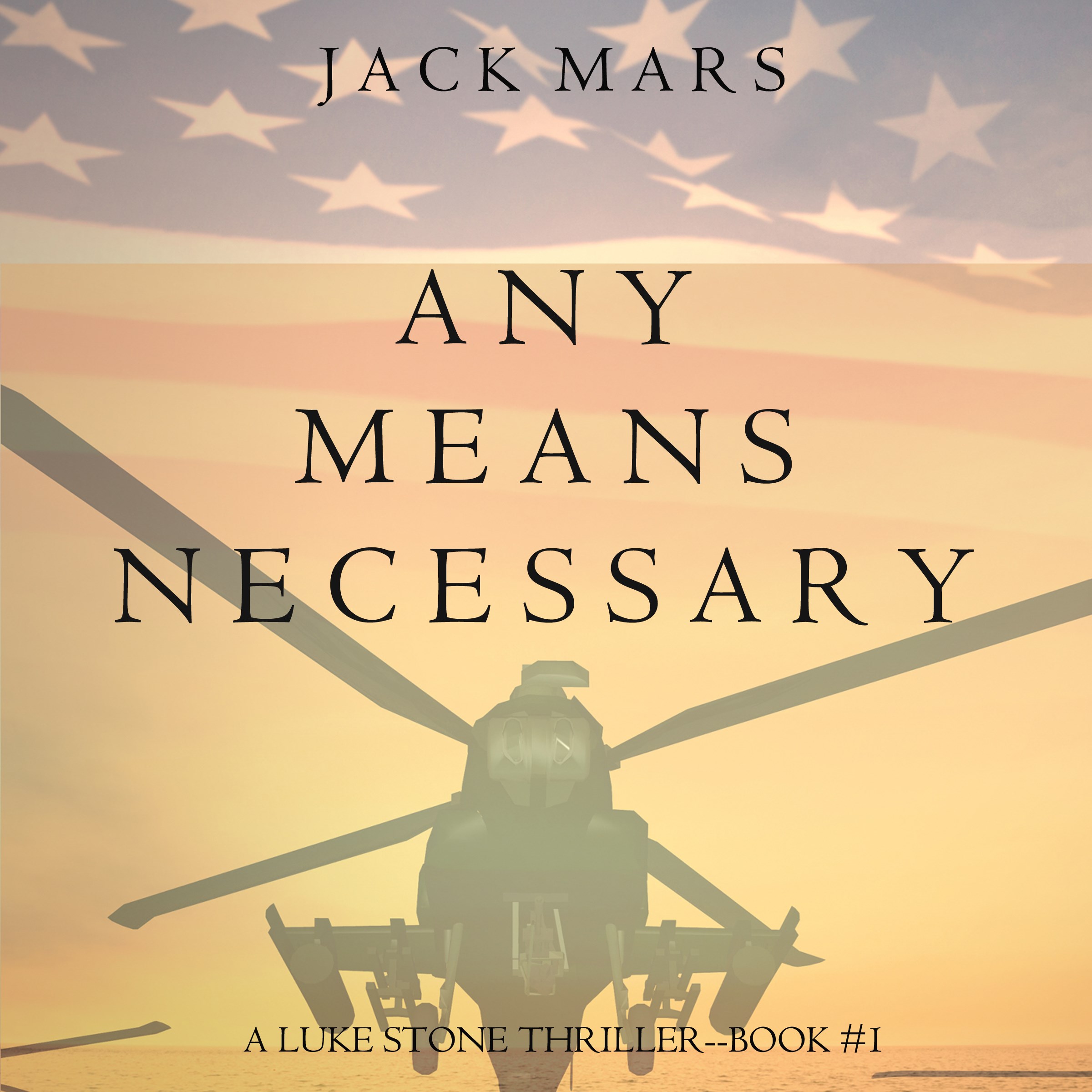
“…a house divided against itself cannot stand.”
Matthew 12:25CHAPTER ONE
January 28
11:05 a.m. Sinai Time (4:05 a.m. Eastern Standard Time)
Near Sharm El Sheikh International Airport
Sinai Peninsula
Egypt
“It’s coming,” the young spotter said, his voice edged with a hint of worry. “The plane is coming.”
A few feet away, Hashan al Malik sat cross-legged on the rugged ground, smoking the last of a Turkish cigarette. His long fingers were thin and dark, dirt embedded so deeply into them that they might never come clean. His face was leather. His thick beard was white, with a few streaks of black remaining, but his eyes were sharp and alive. His gaze was piercing. He had been alive a long time, and it was not an accident.
In the world of itinerant fighters for Allah – the martyrs, the mujahideen – he was often known as Alshaykh, the Arabic word for “the Old Man.” Today, he felt every minute of his years. He was certainly too old for this. His hands were cold – almost like ice – and his body was not much better. It was freezing up here.
He glanced at the spotter, a dark-skinned Bedouin in a light blue turban, who had spent his entire short life traversing these dry, barren mountains. The boy wore sandals on his bare feet. His cheeks were soft and clear – he could not grow a beard if Allah himself demanded it. He stood, gazing into the distance, his high-powered binoculars trained far to the north and west.
“Can you read the markings?” Hashan said.
The boy hesitated. “Moment… in a moment… yes.”
Hashan could just hear the airplane now, the noise of its engines fighting to be heard above the roar of the wind. He fancied he could almost hear the sound of the landing gear engaging.
“What does it say?”
“It says TUI?” the boy said, almost asking a question. Then, with more confidence: “Definitely. TUI.”
Hashan consulted the watch on his skinny wrist. It was quite a thing, that watch. Black and heavy, with a thick band, its big face set behind tempered glass. It was shockproof, waterproof, resistant to extremes of cold and heat, and perfectly accurate at high altitudes. If he sold the watch, the proceeds would feed an entire peasant family for a year – but the watch was more important than the family. The family could starve, but a man like Hashan needed to know the time.
As it happened, the time was right. In fact, the plane was twenty minutes late.
“That’s it,” Hashan said. “That’s the one.”
He took one final drag of the cigarette, then flicked it away with his thumb and forefinger. He stood and threw off his heavy, scratchy wool blanket. He allowed himself a few seconds to admire the jagged hillsides all around them, and the taller mountains just to the west salted with white snow. Two seconds, maybe three – there wasn’t much time. Already he could see the black speck moving through the sky, growing in size, coming their way.
He hefted the brown and green rocket launcher from the ground where it lay. It was a beautiful thing – a Strela-2, Russian-made surface-to-air missile system, liberated from the personal stockpiles of the recently departed Western stooge, Muammar Gaddafi.
Hashan moved quickly through his pre-firing preparations. The Strela could be reloaded, but not in the field. He was only going to get one try at this, so he’d better be ready. He removed the covers and extended the sights, then mounted the tube on his shoulder. He activated the power supply to the missile electronics and waited a few seconds for the power to stabilize.
The launcher weighed heavily on his bones – he had made the boy carry it here.
Hashan’s sixty-two years settled more heavily onto him than the rocket itself. He’d fought many wars in many places, and he was tired. Being sent here felt more like a punishment than an honor. Yesterday, he had hiked through these trackless mountains with this young local boy as his guide, and they had spent the night with no food, and no fire, huddled together on the frozen ground for warmth.
The journey had been difficult, but Hashan had been cold and hungry before, many times. Taking down jetliners with old Soviet shoulder-fired missiles was even more difficult. You must be an expert to do it, which Hashan was, but even then…
Even then…
He shook his head. Silly old man. Allah was the one who sharpened his sight. Allah steadied his hands. Allah guided the missile to its target.
Hashan was too tired even to pray. An image passed through his mind – Allah bathed in bright light, beckoning him to Paradise. He sighed. It would have to do. The Perfect One knew everything, including his most inadequate servant’s intentions.
“Give me strength,” Hashan muttered under his breath.
He positioned his right eye behind the iron sights, steadied the tube with his left hand, and applied half trigger with his right. It happened almost automatically, as if the launcher was doing it by itself. Hashan could now see the plane clearly enough – a big boat of a thing, like a fat bumblebee moving slowly left to right, coming down for a landing at the airport twenty miles south of here. The winter sun glinted off its cockpit windows as it approached.
It didn’t matter what Hashan saw. The missile would decide if the shot was clean. Suddenly, a light appeared in his iron sights and a low buzzer went off. The missile had acquired an infrared signature from the plane. Hashan aimed the launcher in front of the plane, leading it just a bit. He planted his feet and fully depressed the trigger.
The missile left the tube with a WHOOOSH, the force of it rocking Hashan’s slender frame. He watched it go, the front and rear fins popping out instantly. It seemed to fly away in slow motion, and he almost imagined that he could see it spinning.
“God is great,” the boy said beside him.
Hashan nodded. “Yes.”
That much was true, no matter whether the missile found its target.
* * *Congressman Jack Butterfield of Texas lounged in a first-class window seat, simultaneously sipping a vodka tonic, watching the mountains pass below them, and listening to white-haired English billionaire Marshall Dennis prattle on beside him about some hedonistic misadventures he’d enjoyed in Ibiza as a young man.
“That’s a riot, Marsh,” Jack said, and he meant it. The whole trip had been a riot so far. This was the party plane. They had all started drinking in an airport VIP lounge before they left Gatwick. Everyone had roamed about the cabin at will for the duration of the flight, as though they were at a flying cocktail party.
And the young redheaded stewardess had just served him another drink, even though they were landing. Jack’s eyes followed her as she moved up the aisle and stopped at the Egyptian Consul General’s row. Boy oh boy, Jack would love to have a few misadventures with that stewardess.
He needed to think of a reason to call her back here.
“If it’s okay with you,” Jack said, “I probably won’t share that story during the unveiling.”
“Oh, I doubt a single person would be surprised,” Marsh Dennis said. “I’ve been the sporting type my entire life.”
“I know you have. Believe me when I say I’ve followed your – ”
Just then, the plane banked hard and lurched violently to the left. A voice came over the airplane’s public address system. Jack recognized it as the Oklahoma drawl of the pilot, an old US Navy vet Jack had briefly met when coming aboard. But the voice was different now. The man spoke fast and loud.
“Flight attendants! Prepare for emergency landing.”
Someone two rows back gasped.
The pretty red-haired flight attendant had fallen across the Consul General’s lap. The plane was banking so steeply, she was nearly upside down, her legs in the air. She could not regain her feet.
Jack Butterfield turned to Marsh Dennis. Everything seemed to slow down and take on a surreal cast. Marsh’s bloodshot eyes had opened wide, nearly round with sudden fear. For the first time, Jack noticed the deep lines in Marsh’s face – long, narrow slot canyons that undulated down his cheeks.
Jack glanced down at his own hand, holding his vodka drink in a plastic airplane cup. He hadn’t spilled a drop of it, despite the commotion. He felt a moment of absurd pride about that – he’d been drinking a long time. Hell, he was a Texas man.
“Hard stick right!” someone shouted over the speakers. “Hard right, I said. Oh God, it’s tracking us!”
Jack looked around for his seatbelt. He found it, clipped it in, and cinched it tight.
A moment passed.
“Prepare for impact,” someone said.
Impact?
Beside him, Marsh Dennis placed his weathered hands on top of the seat in front of him.
Somewhere behind them, far back in the main cabin, a sound came. Congressman Jack didn’t understand the sound. It was so loud, it was beyond his understanding. It was like a thunderclap, multiplied by a thousand. An instant later, the flight trajectory changed drastically. The plane was falling – a sickening plunge. A rushing sound came… there was nothing to compare it to.
Things went flying by now, sucked backward. The pretty redhead was one of those things. Her drink cart was another. After that, another person went – a fat man in a suit.
“Crash positions!” a booming voice shouted.
Jack screamed, but he couldn’t hear himself. He dropped his drink and clapped his hands over his ears.
The cabin of the plane was like a narrow tunnel in front of him. When it flipped upside down, he closed his eyes tight. In the midst of his terror, no thought came to him, only a dim awareness that whatever happened next, he did not want to see it.
* * *“Here it comes,” Liz Jones said.
She stood with her advance hospitality team in the international VIP passenger greeting area in Terminal 1 at Sharm El Sheikh Airport. Her team all wore black and gold Dennis Hotels Worldwide uniforms. She wore a tan business suit.
The windows here were four stories high, giving a commanding view of the surrounding mountains, and the desert approach to the airport itself.
She felt a trickle of nervousness run down her spine – this one was a major deal. A planeload of heavy hitters was coming in, including Sir Marshall Dennis himself, and most of them were going to be roaring drunk by now. But Liz could handle it. She knew that about herself. She had run with the big dogs, all over the globe, for years and years.
“Let’s look sharp, everybody,” she said.
Suddenly, a young man in her group, a guy from Ireland, gasped. Then a young woman screamed. Now more people all over the lounge were screaming.
Liz stared out the window, her pretty middle-aged face numb, her brain frozen in shock. For a long moment, she could not understand what was happening out there. It didn’t make sense. The unfamiliar data simply did not compute.
On the other hand, somewhere deep inside her mind, she knew she had stored footage of what had just transpired. If she replayed it, she knew what she would see – the plane approaching over the mountains, then a flash of light on the right side of the plane about halfway back, just behind the wing. She had seen it happen in real time, but had been unable to process it. She had been psyching herself up for the disembarking, and didn’t realize what she was looking at.
The plane had cracked apart in midair. There were two pieces at first, then three, then four. The rear of the fuselage spun away like a boomerang. The front section came forward and down. It turned upside down, moving very fast, crashing into the foothills and spraying into a thousand shards. The wings disintegrated as they fluttered to the Earth.
Liz stared and stared. Now there were fires all over the hillsides. All around her, her team stood silently, statues in Dennis black and gold. Behind them, in the terminal, people were still screaming, and now people were running.
Several people had collapsed to the floor.
“Was that really the plane?” Liz said to no one.
CHAPTER TWO
4:35 a.m. Eastern Standard Time
The White House Residence
Washington, DC
The phone rang.
It made a funny sound, not so much a ring as a buzz, or a hum. But it was loud. Also, on each ring it lit up the early morning darkness in blue, like the siren lights on a police car. Luke Stone hated that phone.
He lay somewhere between asleep and awake. Images flashed in his mind. The past few years: an explosion at the old White House, the stately colonnade blowing apart, chunks of it flying up into the air; a gun and rocket battle in a vast open-air stadium in North Korea; Ed Newsam’s fierce eyes, a container ship engulfed in flames behind him; Mark Swann, skinny and bearded in an orange jumpsuit, eyes vacant, chained to a group of other ISIS prisoners; Becca’s pained and angry eyes, her face thin, her skin like paper… Gunner’s big worried eyes, staring at him, looking to Luke for…
Luke opened his own eyes. Next to him on the bed table, in the dark of the Presidential bedroom, the infernal phone kept ringing. A digital clock sat on the table next to the phone. He glanced at its red numbers.
4:35. As he watched, it blinked and changed. 4:36.
“Jesus,” he whispered. He had been asleep for three hours.
A female voice, thick with sleep: “Don’t answer it.”
A tuft of her blonde hair poked out from under the blankets. The heavy blinds were drawn, and if it weren’t for the phone, it would be pitch-black in the room, just the way Luke liked it. But the phone kept throwing crazy blue light around the room.
“It’s like a disco in here.”
He picked up the phone. Mercifully, the stark blue light died.
“It’s for you,” he said, and held the receiver out to her.
A thin hand snaked out, took the receiver, and brought it back under the covers. She held it to the side of her half-hidden face, her eyes still sealed shut.
“Susan Hopkins,” she said in a serious voice, as though she had been up for an hour, had already eaten breakfast, and was being interrupted while going over some important paperwork – the President of the United States never slept.
A thought came to Luke: How many times?
How many times had he, or she, been awakened in the middle of the night because something horrible had happened, or was happening right now, or was about to happen? How many moments of intimacy, of normalcy, of just plain life – something many people took for granted – had been cut short or even demolished by phone calls like this one?
Half-asleep, he allowed himself to imagine another world, one where they didn’t have these jobs. The phone didn’t ring in the middle of the night with terrible news. She was on TV in some capacity. He was a college professor. It was a busy life, but things could be scheduled, plans could be made, and they didn’t have to hide their relationship.
He still worried about that part of it, maybe more than ever. The world seemed to have given them a free pass these past few weeks. Maybe it had been the influence of the holidays – people had their own lives and families to think about. Susan’s daughters had come in from the West Coast. He and Gunner had spent a lot of time here at the Residence over a few days. It had been awkward at first – Gunner was a little younger than Michaela and Lauren, and he had no experience dealing with the rare bird children of some of the richest people on Earth. Even so, they had all settled in together a little bit, and had a weird sort of Brady Bunch Christmas. It even snowed on Christmas Eve.
And somehow, some way, it all stayed out of the media. When Luke dropped Gunner back at his grandparents’ house, there were no news trucks parked outside. No reporters called Luke at his office, pressing him about his close advisory relationship with the President. It was quiet on the media front – too quiet. Whenever he asked Susan how this was staying out of the news, she just smiled mysteriously and said:
“Don’t worry. We have our methods.”
But he was worried. The situation gnawed at him. Mostly, he was worried about Gunner. The boy was growing up, and Luke wanted him to have something like a normal life. God knew he deserved it after everything he’d been through. He was still with Becca’s parents, and that was fine – if anything, they had been more cordial than usual just lately. They were nothing if not social climbers, and their former son-in-law was now quietly dating the President.
Truth be told, Luke would love nothing more than to have Gunner move back in with him. But he was still in the spy game, and running his own agency now. It was a lousy thing to admit, but he just didn’t have time to raise a son right now. If Gunner moved in with Luke, the boy would spend a lot of time on his own. For now, Luke made every effort he could to be a presence in Gunner’s life.
Luke shook his head, clearing the wandering thoughts away. Under the blankets, Susan was listening intently. For a moment, Luke held out hope that maybe this call wouldn’t be so bad. Heck, maybe it was even good news – something so good that it just couldn’t wait until morning. What would that be?
“Oh God,” Susan said, the tone of her voice dashing any hope he might have had. She took a deep breath and let out a long exhale. “All right. Look. I was asleep until a minute ago. Give me about a half hour to take a shower and have a bite to eat. In the meantime, start pulling together the usual suspects.”
Susan paused while the person on the other end spoke.
“Okay. Thanks.” The hand snaked out again and gave the receiver to Stone. Luke placed it back in its cradle.
“Bad?” he said.
“Yeah.”
She still hadn’t made any attempt to surface from under the covers. Luke’s eyes had already adjusted to the darkness, and she looked like a small child under there – one who didn’t want to get up and go to school.
“Plane crash in the Sinai Peninsula,” she said. “It’s a real mess. Jack Butterfield was on board. So was Sir Marshall Dennis and about sixty other people of varying degrees of importance. We don’t have the whole passenger list yet.”
She pulled back the covers. Her head was propped up on one elbow, her eyes open now and staring at him. They were blue eyes, framed in thick eyelashes. Her hair was beginning to get long. Gone was the conservative (and famous) Hopkins Bob, or Hopkins Helmet, depending on whether you loved her or hated her.
She was getting maybe just a little daring for official Washington, embracing her feminine side more than she had.
“Survivors?” Luke said.
She shook her head. “No.”
She sighed.
“I’ve known Hatchet Jack Butterfield for fifteen years. He was a fool and he was a drunk and he was a good ol’ boy – not my favorite combination. But he was also a decent man, very smart, and very close to the intelligence agencies and the Pentagon.”
“I know who he was,” Luke said.
She shook her head slowly. “I’ve known Marshall Dennis since I was a teenager. He was also a fool and a drunk, and he spent way too much time pawing at teenage girls, but…” She paused.
“Eh, forget it. Nobody’s going to miss Marsh Dennis. His ex-wives are probably all on the phone with their lawyers right now, directing them to make inquiries about the will.” She gestured at the phone. “That was Kurt Kimball.”
Luke nodded. “Of course it was.”
Suddenly, she slid out of bed. In the dim light, he watched her pad naked across the room. One last fleeting image of a different life passed through his mind – a life where it wasn’t time to get up yet.
“I need you at this meeting,” she said. “As much as I hate to say it, the Special Response Team should be in on this one.”
“Because of Jack Butterfield?” Luke said.
Yes, Butterfield was close to the intelligence community in the sense that he liked to visit their offices, listen to their stories, and play with their toys. In exchange for being treated like one of the big boys, he pushed their budget requests through Congress. The hatchet in Hatchet Jack came from his passion for cutting after-school activities and social programs for poor people.
Luke had been expecting a call, and then a visit, from Hatchet Jack one of these days. He didn’t look forward to playing footsie with Jack Butterfield, but it had to be done. The SRT was the President’s pet agency, but Congress made the budget decisions.
Well, he supposed that particular visit wouldn’t be happening now. Luke smiled inwardly. He would never have wished any harm upon Congressman Butterfield, and especially not on the other passengers, but…
He stood, went over to the bay window, and pulled back a corner of the heavy drapes. The forecast had called for snow, and it had been right. It came down heavy, blown by gusting winds. It looked like there were several inches on the ground already.
“It’s snowing,” Luke said. Now he did smile. “To coin a phrase, the morning commute is gonna be a mess.”
“That plane was brought down, Luke. Kurt thinks it was a targeted assassination. Worse, he thinks it might be the start of something bigger.”
CHAPTER THREE
5:17 a.m. Eastern Standard Time
The Situation Room
The White House, Washington, DC
“I’ve already seen the photographs,” an intern said.
“Gruesome. Corpses and body parts strewn across the hillsides. To think that Marshall Dennis is one of them. God. We studied him in an entrepreneurship class when I was at Wharton. He was amazing – a real force of nature. You wouldn’t think a guy like that would ever die. Like, he wouldn’t allow it, or something.”
Luke was riding in an elevator packed with White House staffers and intelligence people. He glanced at the one who had spoken. The guy was very young, tall and fit, in a blue suit jacket and dress shirt with an open-throated collar, and a flop of blond hair nearly obscuring his face. He reminded Luke of New Wave rock bands from the 1980s.
The kid hadn’t been speaking to anyone specific, just all the elevator riders in general. He had made an announcement of sorts: he had seen the pictures already. Briefly – very briefly – Luke wondered which wealthy campaign donor the kid was the son or nephew of.




